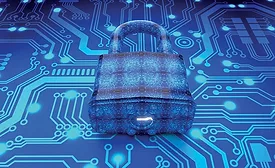Home » information security
Articles Tagged with ''information security''
The Human Strategy is the Best Cyber Defense to Combat COVID-19
The pandemic has highlighted the critical need to cultivate the workforce to ensure there are highly skilled professionals to meet the new demands
May 7, 2020
Sign-up to receive top management & result-driven techniques in the industry.
Join over 20,000+ industry leaders who receive our premium content.
SIGN UP TODAY!Copyright ©2026. All Rights Reserved BNP Media.
Design, CMS, Hosting & Web Development :: ePublishing












